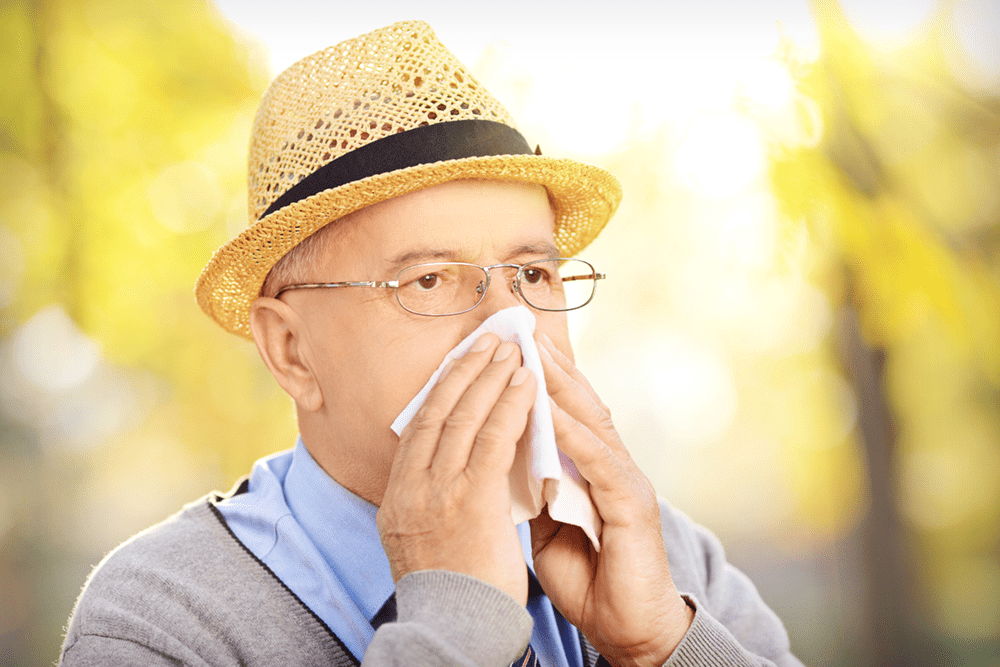Allergies in Florida can peak in the spring months, causing irritation to your sinus and overall health. Although Floridians are lucky to have beautiful sunny weather and warm temperatures year round, many Floridians endure bad allergies year round. Generally, allergy season in the U.S. peaks in the spring when plants do most of their blooming. But with Florida warm weather and longer summers, flowers can bloom longer and continue to produce pollen long after their Northern counterparts have stopped. Those that suffer from allergies are susceptible to symptoms if Florida winters are warm and dry. This is because warm, dry weather created conditions for pollinating plants to flourish, longer. Learn how to reduce suffering from allergies with our tips below.
Signs and Symptoms: Allergies in Florida
The symptoms of allergies are uncomfortable regardless of the time of year in Florida. Look out for the signs and symptoms listed below if you think you may be having an allergic reaction to a high pollen count or mold:
- Congestion
- Runny Nose
- Itchy and watery eyes
- Scratchy throat
- Asthma attacks (in severe cases)
- Fatigue
- Trouble Sleeping
Mold Allergy Symptoms Include…
- All the same symptoms as above
- Hives
- Swollen Eyelids
- Itchy Eyes
- Wheezing
In many ways, allergies have similar symptoms to colds and the flu. Since cold and flu season also peaks during the spring, your family’s sniffling and sneezing may be due to illness. Any symptoms lasting over two weeks, however, are a good indication that your symptoms are from allergies.
Tips to Reduce Allergies
Allergies are the result of an allergic reaction to pollen or mold spores in the air and can seem inescapable. Fortunately, there are ways to reduce your exposure and help make your spring in Florida more of a comfortable experience.
- If you exercise outdoors, wait until evening to do your routine as pollen counts are lowest in the evening.
- If you need to mow the lawn or do outdoor yard work, consider wearing a dust mask.
- If you have ragweed allergies, remove the plants in your yard before they bloom to help cut down on the pollen in your area.
- Clean out your air filtering system regularly, as dust can build up over time and create irritants to circulate in your house.
- Purchase a HEPA filter or air filtration unit as these can significantly reduce the number of allergens in your home.
Mold-Specific Tips
- Don’t hang your wet clothing indoors to dry; this can make mold allergies worse.
- Reduce the amount of mold in your home! Keep basements, bathrooms, and any other room which retains humidity well-ventilated by opening windows frequently, or purchasing a dehumidifier.
- Heat helps mold grow, so setting up a heater alone can make the problem worse!
- If you have a carpeted room which is prone to mildew or mold, replacing the flooring with wood or tile may be a good idea!
- Regularly clean garbage cans, sinks, and water-based appliances with a bleach solution to keep mold from building up and spreading.
With proper precaution and care, you can minimize the discomfort that allergies bring to the Lakeland, Florida area in the spring.
If you’ve tried everything to reduce your exposure to allergens and nothing seems to be working, visit Trinity Medical Group. Where Dr. Adam Parker, DO and Dr. Barry Nash, MD are experienced in helping find the right treatment plan for every patient. Make an appointment online today so you can breathe easy this fall!

 Call Lakeland
Call Lakeland
